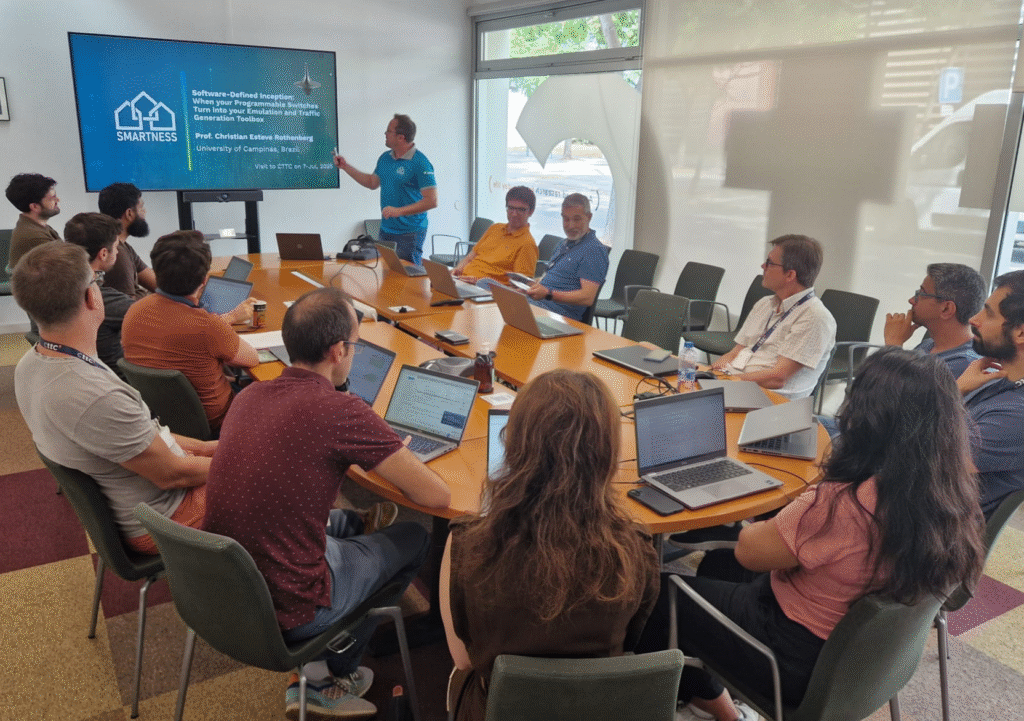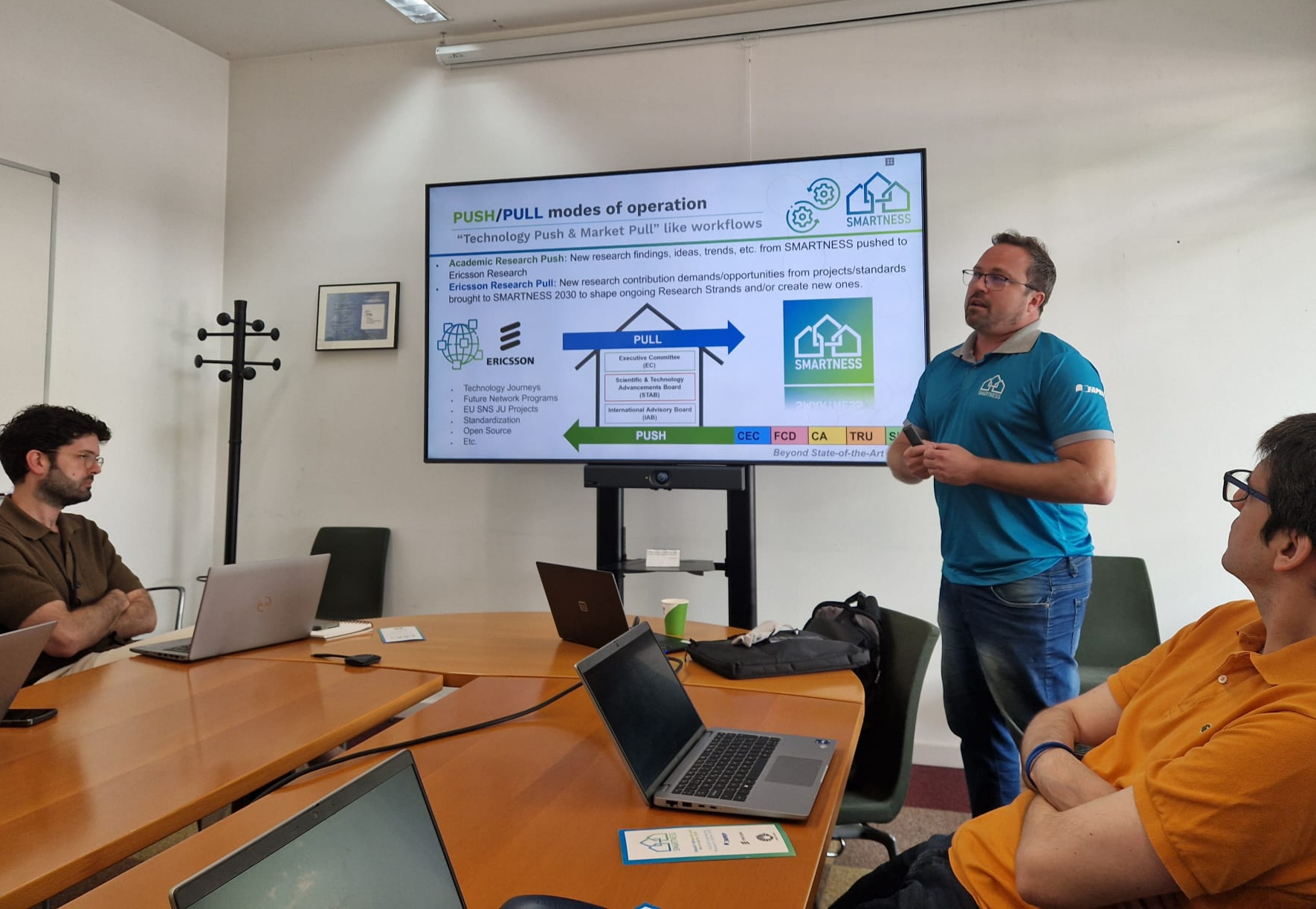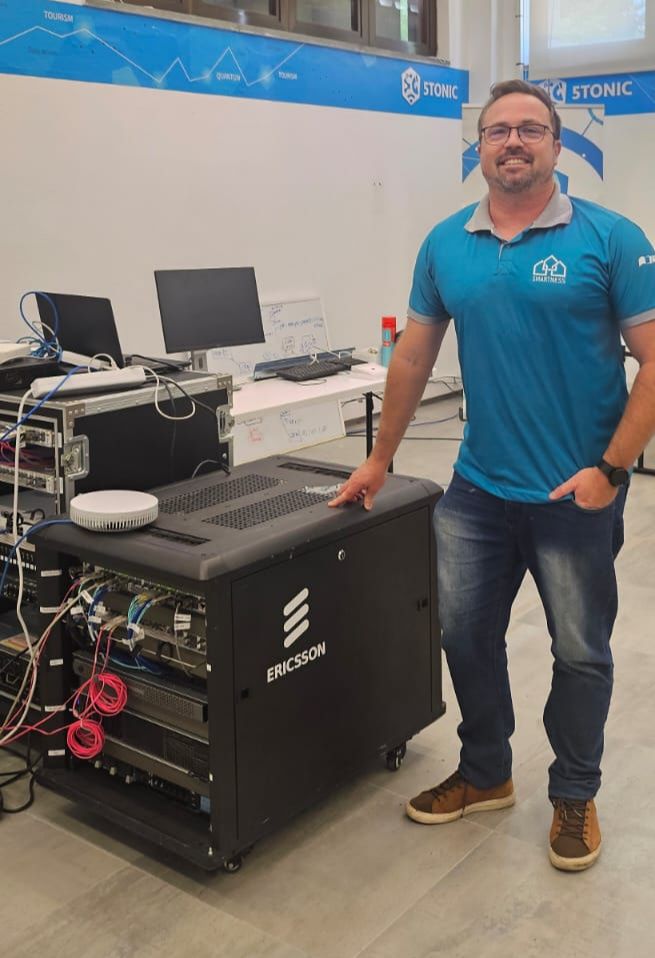The second academic semester is already underway, but SMARTNESS remained active throughout July. Taking advantage of his participation in NetSoft 2025, held in Hungary, Prof. Christian Rothenberg, PI of the Center, extended his agenda to visit leading institutions in communication networks and digital technologies in Spain.
The first visit was to the IMDEA Networks Institute and UC3M in Madrid, an international research center that brings together experts from more than 30 countries, the global 5G Telefonica Open Innovation Laboratory (5TONIC), contributing to cutting-edge research projects towards 6G, many of them in technical collaboration with Ericsson.
He then met research fellows from Telefónica Innovation Digital, in Madrid and Barcelona, including the SMARTNESS International Advisory Board member Dr. Luis Contreras. The technical discussions included updated research roadmaps for 2026+ at SMARTNESS and Telefonica’s large-scale digital innovation initiatives, focusing on 6G collaborative initiatives as pursued within the EU SNS programme. The Spanish technical visit agenda concluded with a visit to the Centre Tecnològic de Telecomunicacions de Catalunya (CTTC), in Castelldefels. The institute is dedicated to applied research in telecommunications and geomatics, with strong expertise in experimental platforms and the development of integrated communication solutions.
During these visits, Prof. Rothenberg delivered the talk “Software Defined Inception: When your Programmable Switches Turn into your Emulation and Traffic Generation Toolbox”. His presentation revisited the trajectory of Software Defined Networking (SDN) and highlighted open-source tools developed within SMARTNESS, such as the P4 Programmable Patch Panel (P7) and the PIPO-TG and P4R traffic generators. These solutions enable programmable network emulation in advanced scenarios, ranging from critical application traffic (TSN, stateful TCP) to immersive workloads (VR/XR, point-cloud, and 360 video).
Prof. Rothenberg also introduced SMARTNESS, presenting the Center’s mission and ongoing research activities in 5G and 6G networks, cloud computing, and artificial intelligence for digital services. He also discussed collaboration opportunities for 2026 in common research areas of interest, such as programmable networks and 5G/6G testbed infrastructures, as well as the establishment of long-term strategic collaborations between SMARTNESS and EU-based institutions. These efforts may result in new double degree programs and exchange of research at different levels (MSc, PhD, Post-docs, and Faculty), strengthening the position of the state of São Paolo and Brazil in the global 5G advanced deployments and 6G development initiatives.









